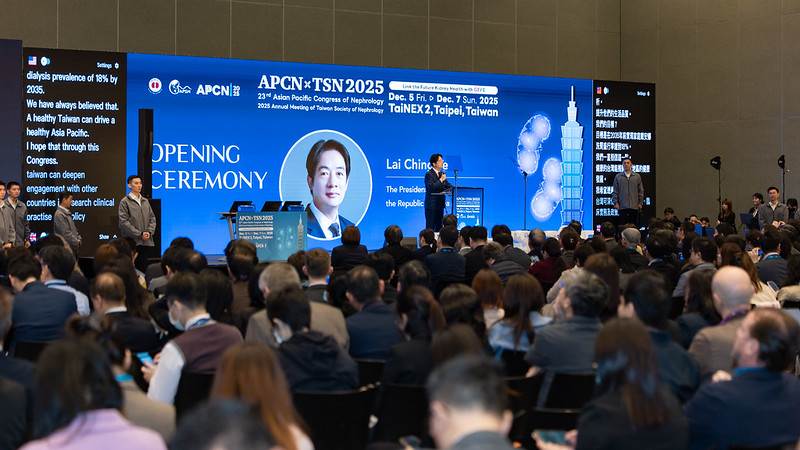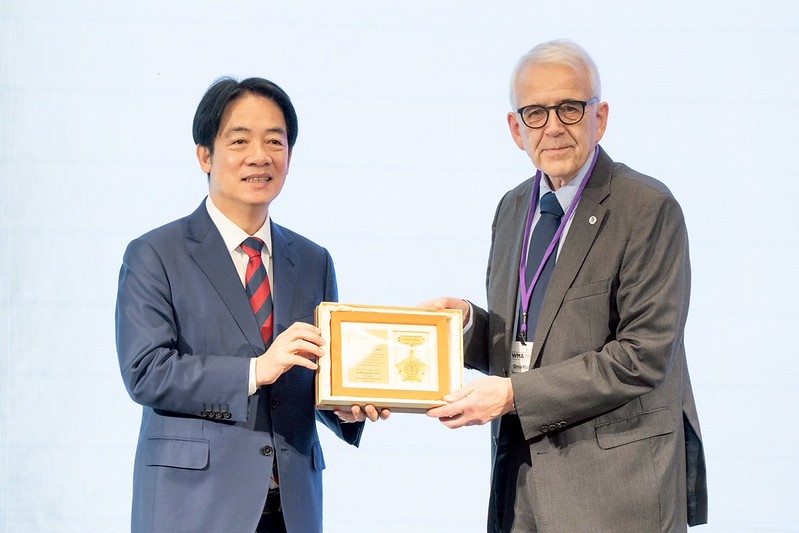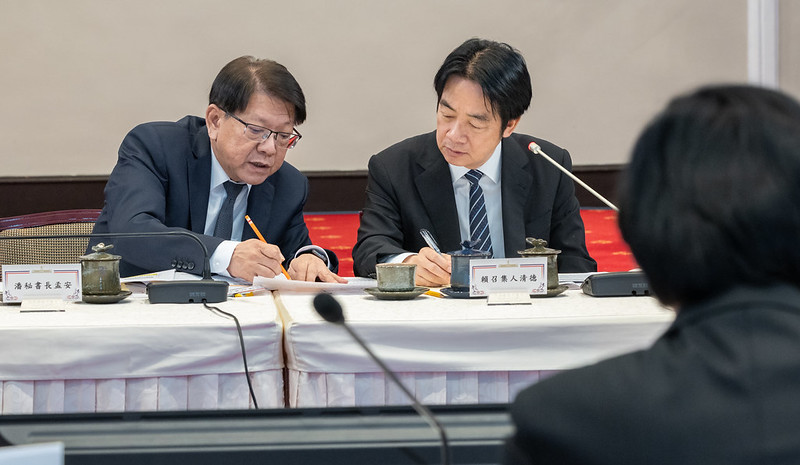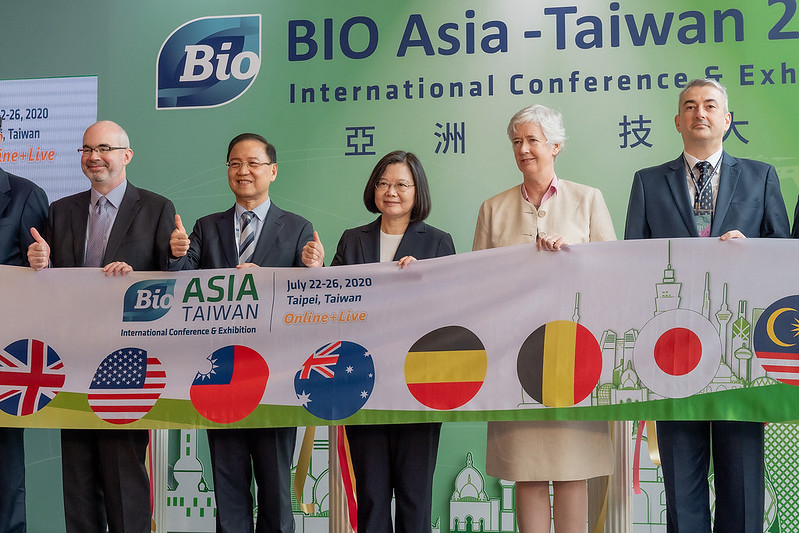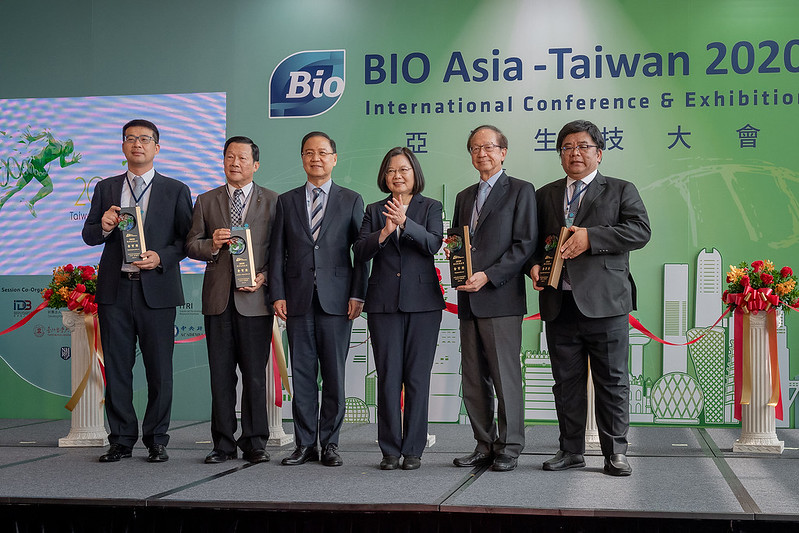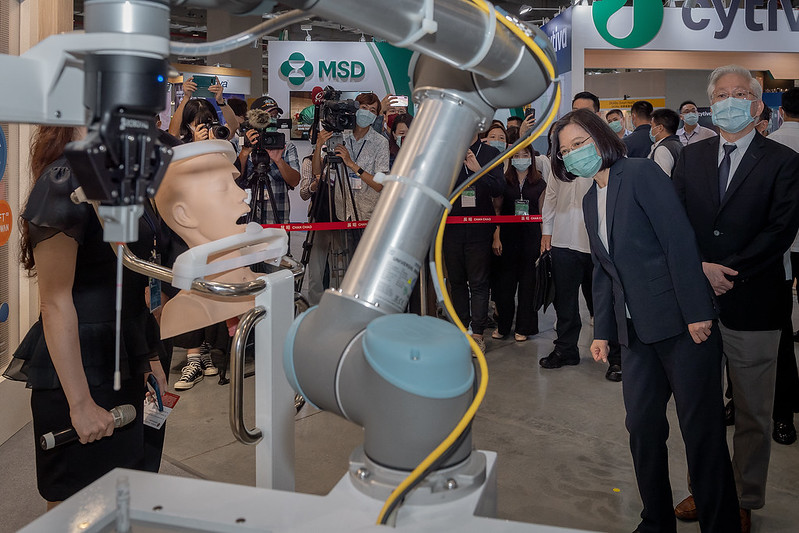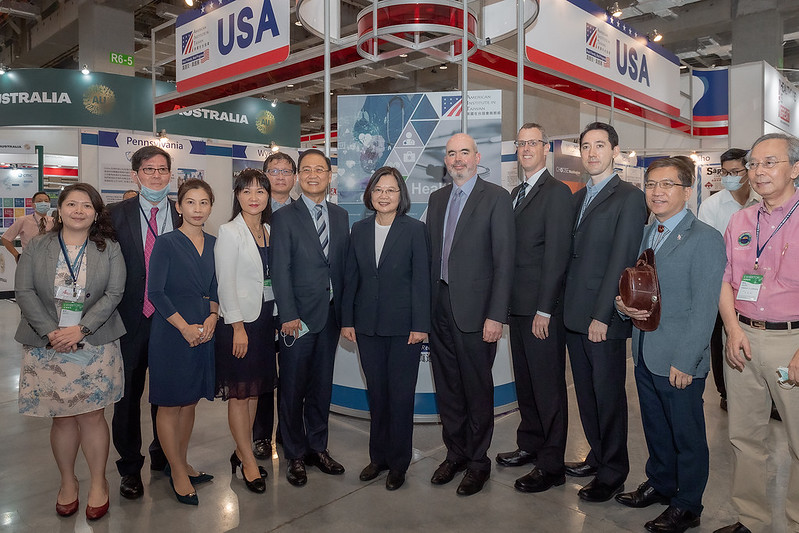News & activities
 News releases
News releases
In remarks at the opening ceremony for the 2020 BIO Asia-Taiwan Conference and Exhibition on the morning of July 23, President Tsai Ing-wen emphasized that in our "5+2 industrial innovation program" the biomedical industry is one of our top priorities for development. This event, she said, will showcase breakthroughs in biomedical technology and biotech industry innovations, noting that clinical trials for many new pharmaceuticals have recently been unblinded. She also expressed hope that this biotech exhibition will promote international cooperation, so that everyone can work together to realign the biotech industry and create new opportunities in the post-COVID-19 era, while taking our biotech industry to the next level.
A translation of the president's remarks follows:
Although the COVID-19 pandemic is still serious in many places around the world, we are still holding the 2020 BIO Asia-Taiwan International Conference and Exhibition as scheduled in Taiwan today. This is the first international biotech conference in Asia this year, which is a tribute to the collective efforts of Taiwan's people and government. I also want to thank the Taiwan Bio Industry Organization and the Biotechnology Innovation Organization (BIO) for their efforts to make this happen, and welcome the many international biotech experts, including Nobel laureate Jim Allison, who have joined us in Taiwan for this conference.
Taiwan's achievements in containing the COVID-19 pandemic have drawn much international attention and praise. Because of our disease control experience, and how we have shared disease prevention supplies, I am sure that countries around the world have seen that "Taiwan can help, and Taiwan is helping."
This event is an opportunity to share disease prevention experience, including information about testing and pharmaceuticals, as well as the latest progress in vaccine development. And we are more than happy to share Taiwan's COVID-19 prevention achievements with our international friends.
At the beginning of my previous term of office, we included the biomedical industry in our "5+2 industrial innovation program," and made it a top priority sector for development. Over the past few years, we have built biotech and pharmaceutical clusters throughout Taiwan, drafted regulations, and relaxed restrictions. These moves have all led to significant progress, and accelerated the innovation process.
Over the past two years, Taiwan has also conducted over 300 clinical trials. Eighty percent of those trials were cooperative efforts with major multinational firms, which shows that international funds and technology are bullish on Taiwan, and are increasing their investments here. Last year, Taiwan's biomed industry revenue grew by 8.7%, a new high for the past few years, and total investment exceeded NT$55.1 billion. So I am confident that the biomed industry will be Taiwan's next trillion-dollar industry.
Over the past few years, we have actively developed digital healthcare and precision medicine to create greater value for Taiwan's biotech industry. Development of our biotech industry will in turn improve the quality of medical and health care, so that more patients can benefit. Taiwan's "Act for the Development of Biotech and New Pharmaceuticals Industry" will no longer be in effect after the end of 2021. So based on industrial development needs and strategic thinking for the next decade, we are now planning the next round of innovative legislation to incentivize R&D on new pharmaceuticals.
This year's exhibition will highlight some key advances in industrial development. First, there have been many breakthroughs in biomedical technology. Since lifting restrictions on six types of cell therapy in 2018, Taiwan has reached new milestones in advanced therapies and regenerative medicine. Genetic testing techniques and big data analysis can enhance the development of precision medicine. In the cell therapy sector, many international pharmaceutical firms have engaged Taiwan firms, and we are now developing more and more business opportunities. Second, technological innovations in the biotech industry have led to continuous improvement. For example, Taiwan has attracted a lot of international attention for our nanomaterial and innovative biomaterial applications. So I am confident that this event will show the world Taiwan's innovative capabilities in biotech R&D.
Third, there has also been a lot of good news in the new drug licensing area. Recently, many new pharmaceuticals have been successfully unblinded, and we also saw the highest-value new drug licensing deal in Taiwan's history, which I am sure will continue to spur investment momentum and confidence in Taiwan's biotech market. And fourth, BIO Asia-Taiwan is an ideal venue for promoting international cooperation. Right before this year's event, we held more than 1,000 one-on-one matchmaking meetings, and the number of such meetings may reach 2,000, an all-time high. I believe intensive, frequent, international cooperative discussions will continue to invigorate Taiwan industry.
In addition to exchanging global disease prevention experiences at this event, I also hope that we can work together to realign the biotech industry and create new opportunities in the post-COVID-19 era. This event will certainly open up many key business opportunities for Taiwan, and take our biotech industry to the next level. Thank you.
The president then awarded the Outstanding Company of the Year, Innovation of the Year, and Emerging Company of the Year awards, cut the ribbon for the opening ceremony, and then toured the exhibits alongside other guests. She also expressed best wishes for a successful event, and that Taiwan's biomedical industry will continue to prosper.
